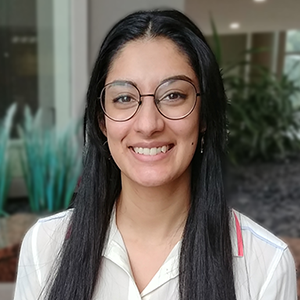Ex-Emory neuroscientist pleads guilty; fired Cleveland Clinic geneticist arrested
One biomedical researcher has pleaded guilty and another has been charged in cases brought by the U.S. Department of Justice as it seeks to root out foreign influence in American science and theft of American intellectual property.
On May 8, Xiao-Jiang Li, a neuroscientist at Emory University for more than two decades before his dismissal last year, pleaded guilty in federal court to filing a false tax return and was sentenced to a year of probation and ordered to pay more than $35,000 in restitution.
A participant in China’s Thousand Talents Program, which the U.S. government regards as a program that recruits U.S-based scientists to steal intellectual property and scientific advances, Li failed to report his foreign income, which the DOJ said amounted to at least $500,000, on his U.S. tax filing. The false filing was discovered after the National Institutes of Health looked into Li’s research activities abroad and Emory conducted its own investigation.
On Wednesday, Qing Wang, who led the Cleveland Clinic’s Center for Cardiovascular Genetics before he was fired, was arrested and charged with false claims and wire fraud. He is accused of failing to disclose to the NIH his affiliation with a university in China, where he was a dean, when he applied for and received more than $3.6 million in grant funding. The FBI, which investigated Wang’s case, also claims that Wang lied to the NIH to receive grant funding while he was collecting money for the same research from the Chinese government.
The DOJ also accuses Wang of being a participant in the Thousand Talents Program and receiving $3 million for his research and other travel and housing perks from the Chinese government.
The DOJ has been targeting Chinese-backed efforts to steal American intellectual property since 2018, as part of its China Initiative. The China Initiative was launched, amid concerns about China’s unethical trade practices and aggressive acquisition of intellectual property, with the overarching goal of countering Chinese national security threats.
“China will do everything in their power to obtain any viable research that we are conducting here in the U.S,” Bill Evanina, director of the National Counterintelligence and Security Center, told National Public Radio. That includes, Evanina said, research related to COVID-19 treatments.
The China Initiative is focused on so-called “nontraditional collectors” of intellectual property. Law enforcement have focused on researchers in labs and universities who may be working with Chinese nationals or the Chinese government.
The DOJ is working with university officials, the FBI and the NIH to investigate scientists who the agency suspects are violating disclosure requirements. Officials at the Department of Energy, the National Science Foundation, and other federal funding agencies are also becoming increasingly concerned about foreign threats to the research they conduct and fund.
The Thousand Talents Program is a Chinese-government-run talent-recruitment initiative that ostensibly aims to entice professors and researchers to work in China. But U.S. government investigators say the program is a mechanism for stealing sensitive technologies. The DOE has barred its employees from participating in such programs, and other federal agencies have taken similar actions.
A number of participants funded by a variety of U.S. agencies have been caught in the DOJ’s net.
The recent cases of Simon Saw-Teong Ang, an electrical engineering professor at the University of Arkansas; Charles Lieber, chairman of Harvard University’s chemistry department; and James Patrick Lewis, a West Virginia University physics professor, all involve the Thousand Talents Program.
Ang, who was last week charged with wire fraud in federal court, is accused of concealing his dealings with China from his university and NASA, from which he received grant funding. The criminal complaint against Lieber is similar: He is accused of lying to Harvard and both of the federal agencies from which he received funding about his involvement in the program. Lewis pleaded guilty to fraud last week after drawing salaries from both WVU and a Chinese institution.
In a DOJ press release about former Emory professor Li, special agent Derrick L. Jackson is quoted as saying: “Our watchdog agency will continue to aggressively investigate anyone who does not adhere to agency rules regarding the disclosure of foreign funding and affiliations.”
Enjoy reading ASBMB Today?
Become a member to receive the print edition four times a year and the digital edition monthly.
Learn moreGet the latest from ASBMB Today
Enter your email address, and we’ll send you a weekly email with recent articles, interviews and more.
Latest in Policy
Policy highlights or most popular articles

Women’s health cannot leave rare diseases behind
A physician living with lymphangioleiomyomatosis and a basic scientist explain why patient-driven, trial-ready research is essential to turning momentum into meaningful progress.

Building a stronger future for research funding
Hear from Eric Gascho of the Coalition for Health Funding about federal public health investments, the value of collaboration and how scientists can help shape the future of research funding.

Councilors advocate for science on Capitol Hill
ASBMB Councilors meet with their elected officials to advocate for basic scientific research funding and training the next generation of scientists.

Hope for a cure hangs on research
Amid drastic proposed cuts to biomedical research, rare disease families like Hailey Adkisson’s fight for survival and hope. Without funding, science can’t “catch up” to help the patients who need it most.

Supporting science through advocacy and community building
ASBMB calls on scientists to take action as funding cuts and policy shifts threaten the U.S. research enterprise, emphasizing the power of community advocacy and persistence in protecting the future of science.

Seven steps to advocating in your home state
Find out how to schedule, prepare for and conduct a productive district office meeting to communicate the importance of fundamental scientific research funding to your representatives.

